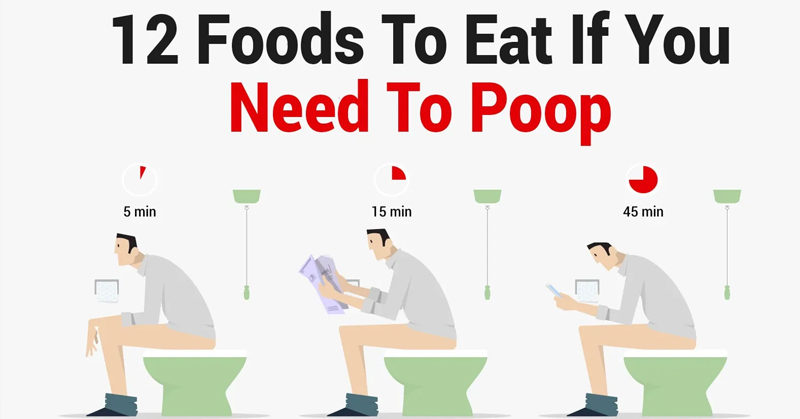Constipation, or the inability to have a bowel movement, affects approximately twenty percent of the population [1]. It can range in severity and can be mildly inconvenient all the way to downright painful. Luckily, there are several foods that help make you poop, which could kick-start your bowels and get you back to regularity.
What Causes Constipation?
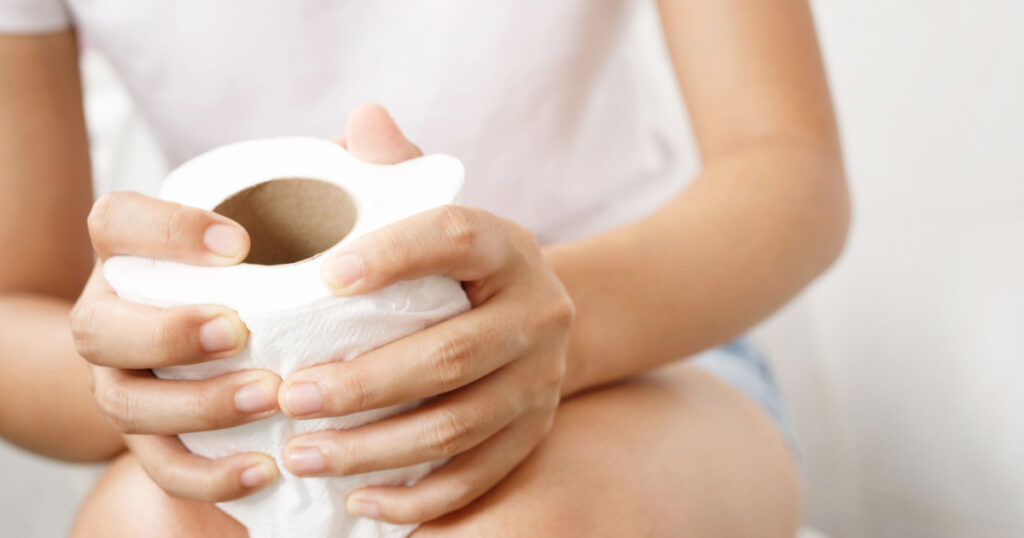
Lifestyle choices, medical conditions, medications, and pregnancy can all cause constipation. Some people also have more sensitive digestive systems and even small changes in their daily routine can inhibit their ability to have a regular bowel movement. According to the Cleveland Clinic, the following are possible causes of constipation:
Lifestyle choices that cause constipation:

- Eating foods low in fiber.
- Not drinking enough water.
- Not getting enough exercise.
- Changes in your regular routine, such as traveling or eating, or going to bed at different times.
- Eating large amounts of milk or cheese.
- Stress.
- Resisting the urge to have a bowel movement.
Read: 16 alarming symptoms of celiac disease
Medications that can cause constipation:

- Narcotics containing codeine, oxycodone (Oxycontin®) and hydromorphone (Dilaudid®).
- Nonsteroidal anti-inflammatory drugs, like ibuprofen (Advil®, Motrin®) and naproxen (Aleve®).
- Antidepressants like fluoxetine [Prozac®]) or tricyclic antidepressants (like amitriptyline [Elavil®]).
- Antacids containing calcium or aluminum, such as Tums®.
- Iron pills.
- Antihistamines (like diphenhydramine [Benadryl®]).
- Certain blood pressure medicines, including calcium channel blockers (like verapamil [Calan SR], diltiazem [Cardizem®] and nifedipine [Procardia®]) and beta-blockers (like atenolol [Tenormin®]).
- Psychiatric medications, like clozapine (Clozaril®) and olanzapine (Zyprexa®).
- Anticonvulsant/seizure medications, such as phenytoin and gabapentin.
- Antinausea medications, like ondansetron (Zofran®).
Health conditions that can cause constipation:

- Endocrine problems, like underactive thyroid gland (hypothyroidism), diabetes, uremia, hypercalcemia.
- Colorectal cancer.
- Irritable bowel syndrome (IBS).
- Diverticular disease.
- Outlet dysfunction constipation. (A defect in the coordination of pelvic floor muscles. These muscles support the organs within the pelvis and lower abdomen. They are needed to help release stool.)
- Neurologic disorders including spinal cord injury, multiple sclerosis, Parkinson’s disease, and stroke.
- Lazy bowel syndrome. The colon contracts poorly and retains stool.
- Intestinal obstruction.
- Structural defects in the digestive tract (like fistula, colonic atresia, volvulus, intussusception, imperforate anus, or malrotation.)
- Multiple organ diseases, such as amyloidosis, lupus, and scleroderma.
- Pregnancy [2].
Read: 7 Exercises to Help Prevent Spider and Varicose Veins
Foods that Make You Poop

While health conditions and medications may be out of your control, making good food and lifestyle choices will help lower your risk for constipation. Luckily, there are plenty of foods that can make you poop. If you are someone who frequently struggles with constipation, try adding some of these into your diet to keep things “moving along”.
1. Apples
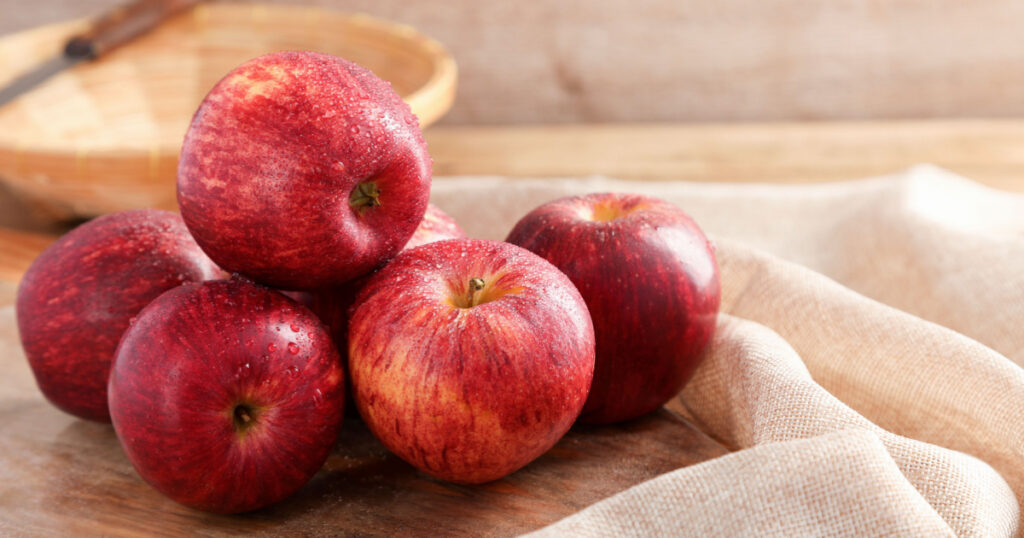
Not only are apples high in fiber, which helps move things through your digestive tract, but they also contain a specific type of fiber. Apples contain pectin, which is known for its laxative properties. In fact, one study showed that participants with constipation took a pectin supplement for four weeks experienced better transit time through the colon, fewer constipation symptoms, and better digestive health. The pectin accomplished this increasing the amount of beneficial bacteria in the gut [3].
2. Prunes
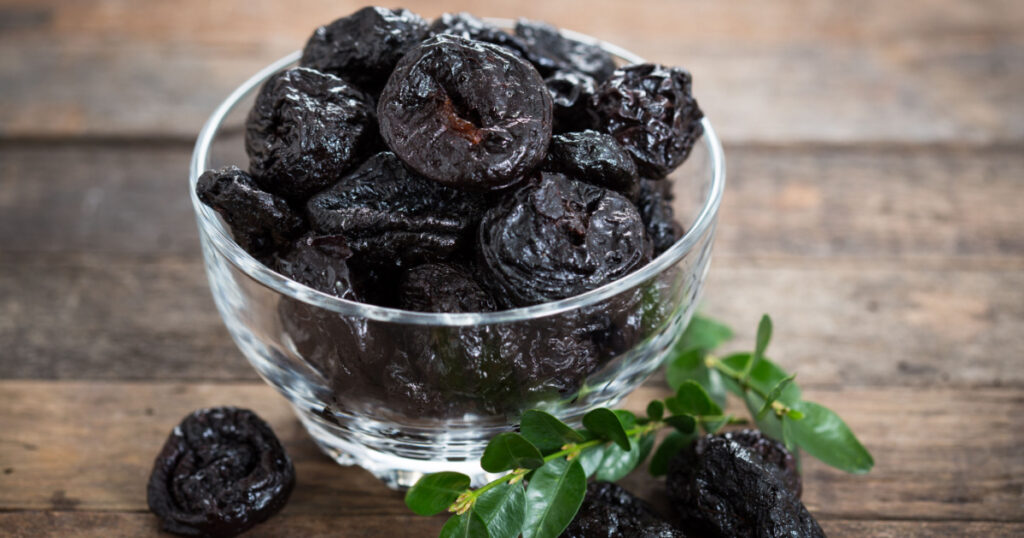
Prunes are perhaps one of the most well-known foods that make you poop. Like apples, prunes are also very high in fiber, but they also contain sorbitol. Sorbitol is a type of sugar alcohol that your body cannot digest very easily. Because of this, it draws water into the intestines which can instigate a bowel movement [4]. Studies have also shown that prunes can help soften stools, and improve the frequency and consistency of bowel movements [5].
3. Flax Seeds
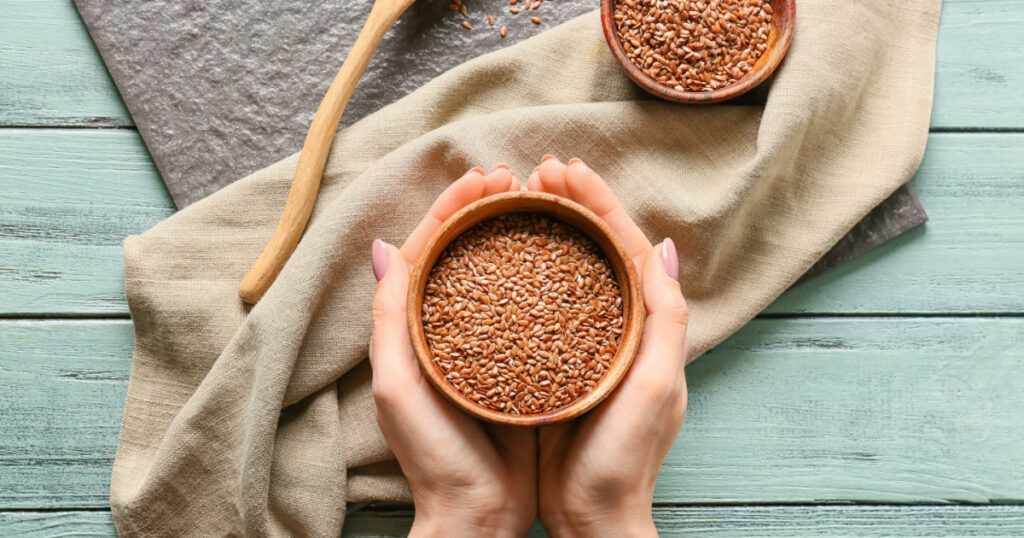
Flax seeds are also very high in fiber. One study showed that participants who ate ten grams of flaxseed every day for twelve weeks experienced fewer constipation symptoms, as well as improvement in other digestive issues, weight problems, and glycemic and lipid levels [6].
Read: Struggling With Mucus? 5 Foods To Help and 4 That Make It Worse
4. Pears
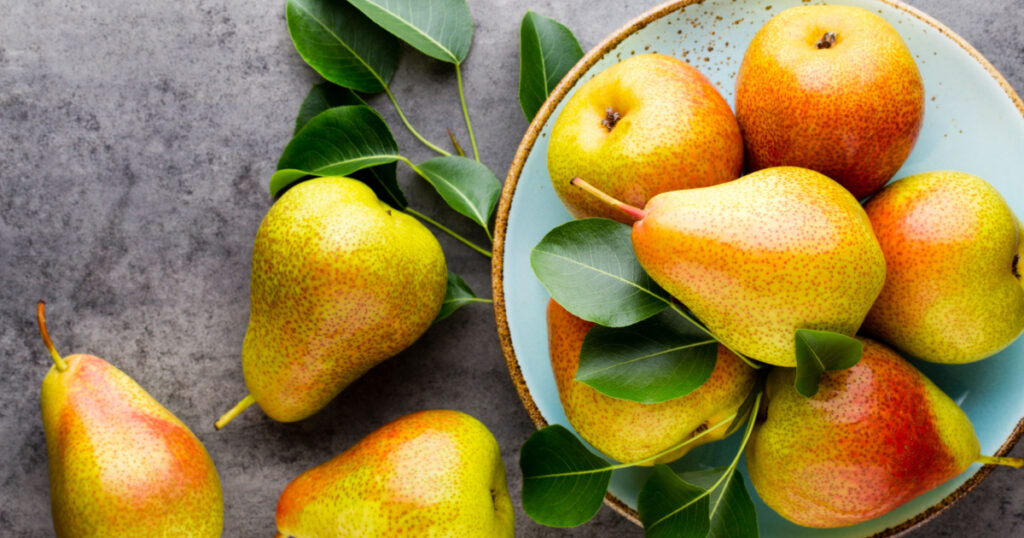
Pears help improve the symptoms of constipation because of three things: fiber, sorbitol, and fructose.
Fiber: one pear contains six grams of fiber. That is 16 percent of the daily recommendation for men, and 25 percent for women [7].
Sorbitol: pulls water into the intestines and stimulates a bowel movement [4].
Fructose: Your body can’t absorb fructose very quickly or in large quantities. It acts as a natural laxative by bringing water into the intestines [8].
5. Beans
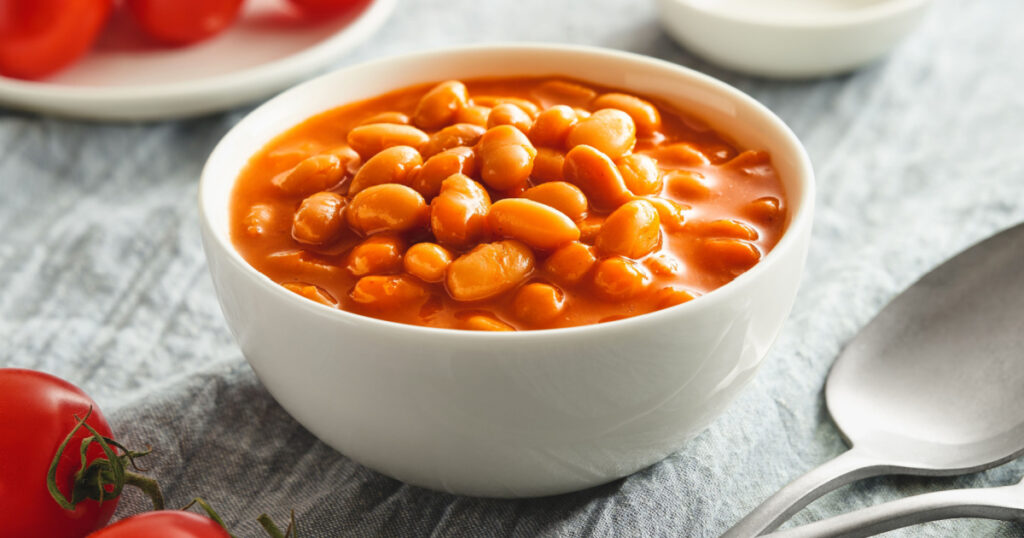
Beans are one of the best foods that make you poop. This is because they contain large quantities of both soluble and insoluble fiber:
Soluble fiber absorbs water. This causes it to form a sort of gel, which softens your stools to make them easier to pass [9].
Insoluble fiber is cannot be digested, so it moves through your digestive system intact. This adds bulk to your stools, also making them easier to pass [10].
6. Rhubarb
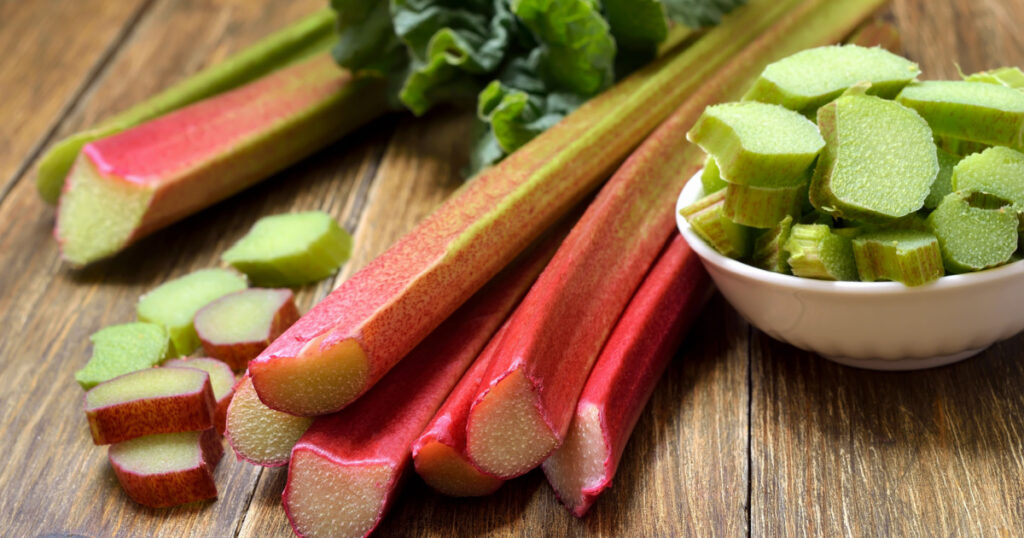
Aside from its fiber content, rhubarb also contains a compound called sennoside A. This compound decreases your levels of aquporin 3, which is a protein that controls water transport in your intestines. These are the same type of compounds found in the herbal laxative known as senna and the popular supplement Senokot®. Lower levels of aquaporin 3 helps you to absorb more water, which softens stools and promotes bowel movements [11].
7. Artichokes
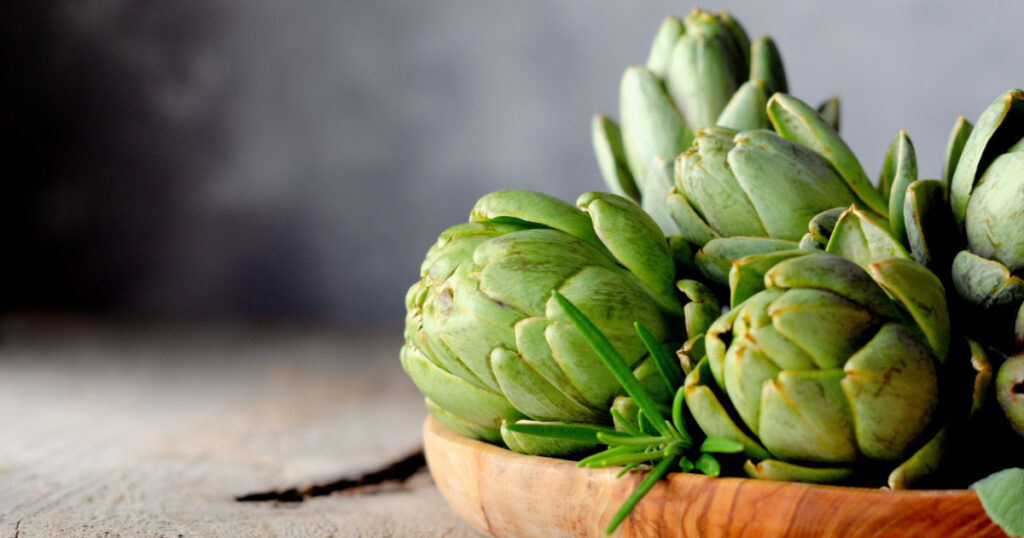
Studies show that the fiber in artichokes has a prebiotic effect. This can improve your digestive health because prebiotics feed good bacteria in your colon. In one study, researchers gave artichoke leaf extract to 208 participants with irritable bowel syndrome (IBS). Not only did this reduce the incidence of IBS, but it also helped to normalize the participants’ bowel patterns [12].
8. Kefir
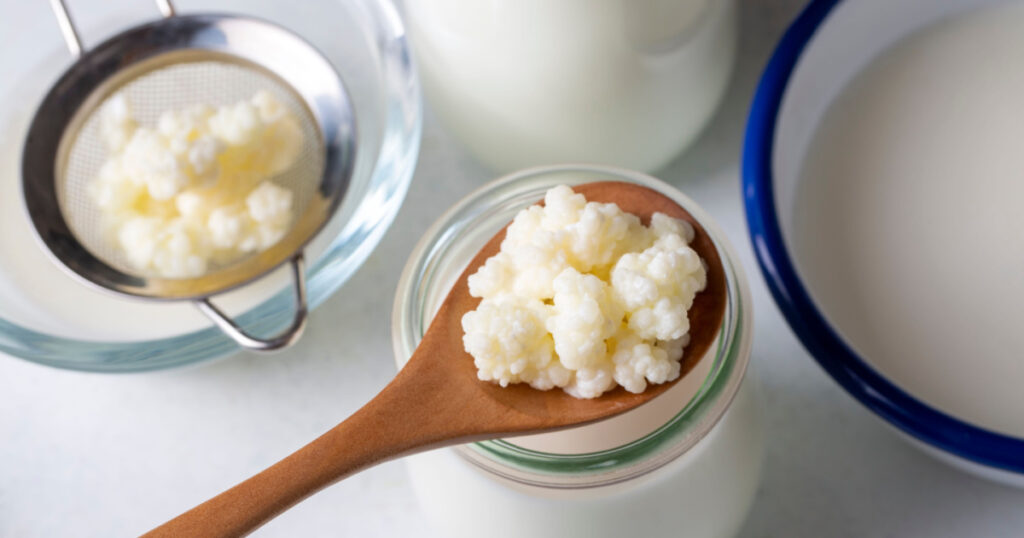
Kefir is a food that makes you poop because of its probiotic content. Probiotics can help improve the consistency of your stools, as well as help improve intestinal transit time. In one study, participants who were struggling with constipation drank kefir for four weeks. After that time, they didn’t need to use as many laxatives, their intestinal transit time shortened, their stool frequency increased, and their bowel movements had a better consistency [13].
9. Chia Seeds
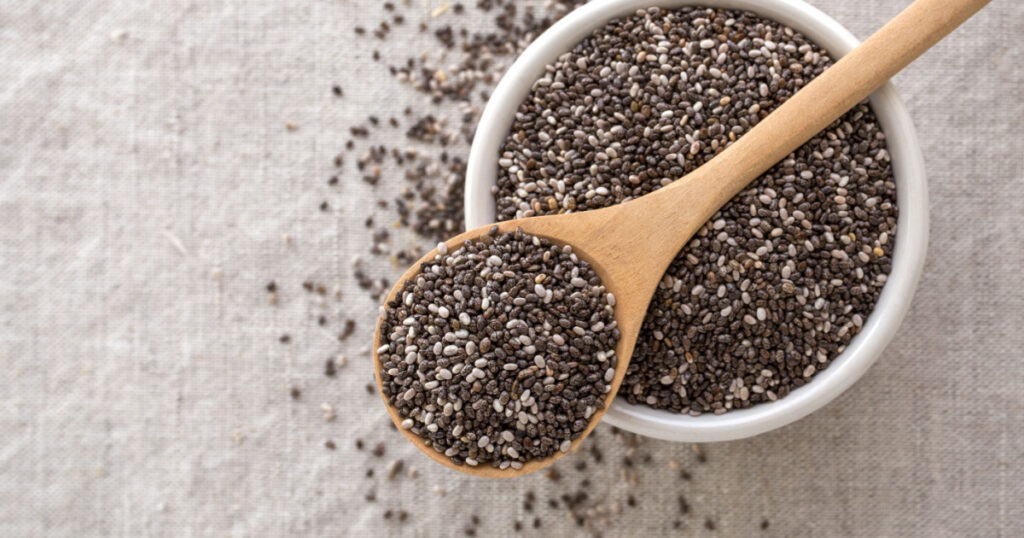
Chia seeds are one of the most fiber-dense foods you can buy. For this reason, they are one of the best foods to make you poop. In fact, they are about forty percent fiber by weight [14]. This high fiber content makes them remarkably good at absorbing water. One study showed that these tiny seeds can absorb up to fifteen times their weight in water. This can make it much easier for you to have a bowel movement [15].
10. Oat Bran
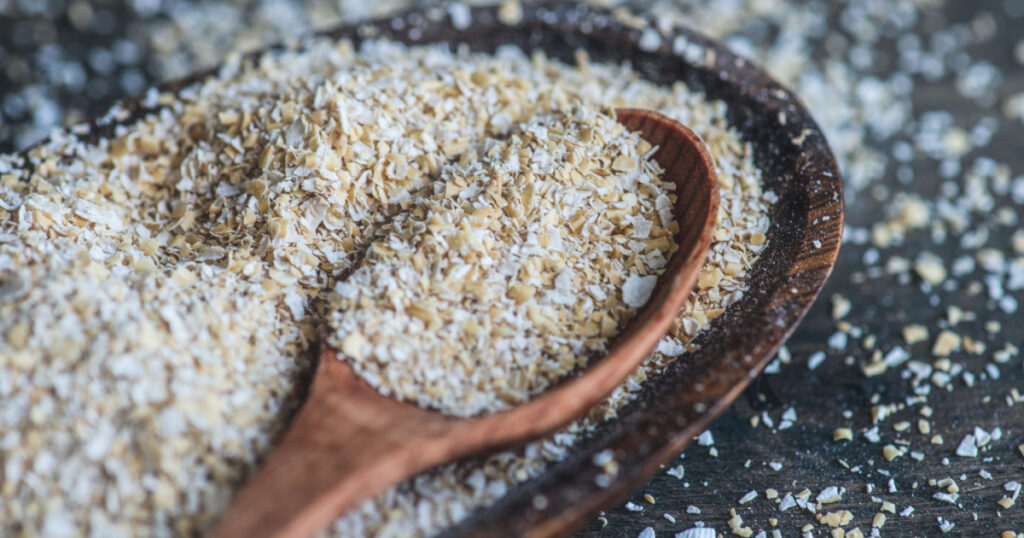
Oat bran, which is the outer casing of the oat grain, is very high in fiber. One study involving fifteen elderly participants demonstrated the laxative power of this fibrous plant. The participants ate oat bran for twelve weeks, and the researchers made observations such as: The participants seemed to tolerate the oat bran very well. The oat brain helped the participants maintain their body weight. The participants were able to decrease their laxative use by nearly sixty percent [16].
11. Lentils
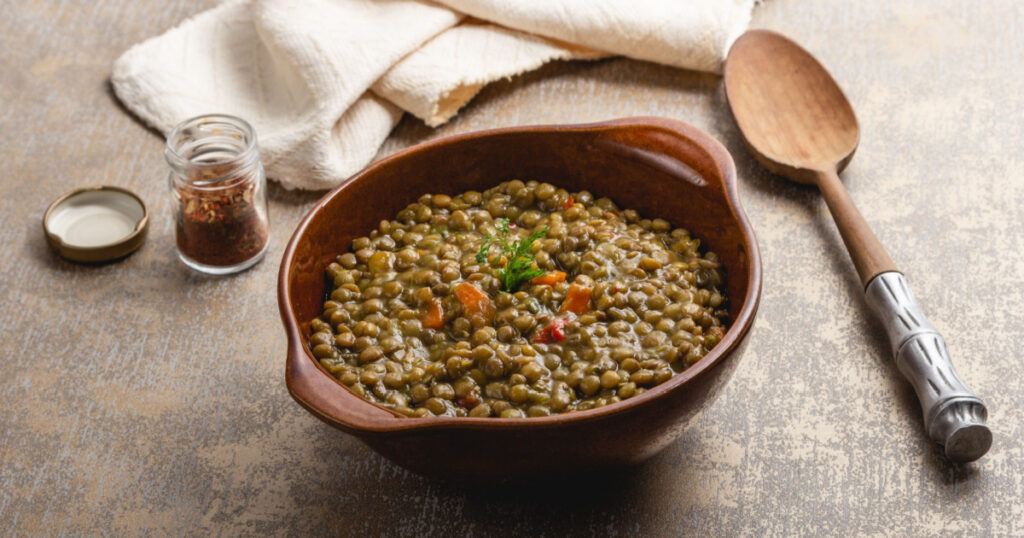
Lentils are a very fiber-rich legume. They can also help increase the production of butyric acid, a short-chain fatty acid in your colon. Butyric acid increases the movement of your digestive tract, which promotes bowel movements [17].
12. Figs
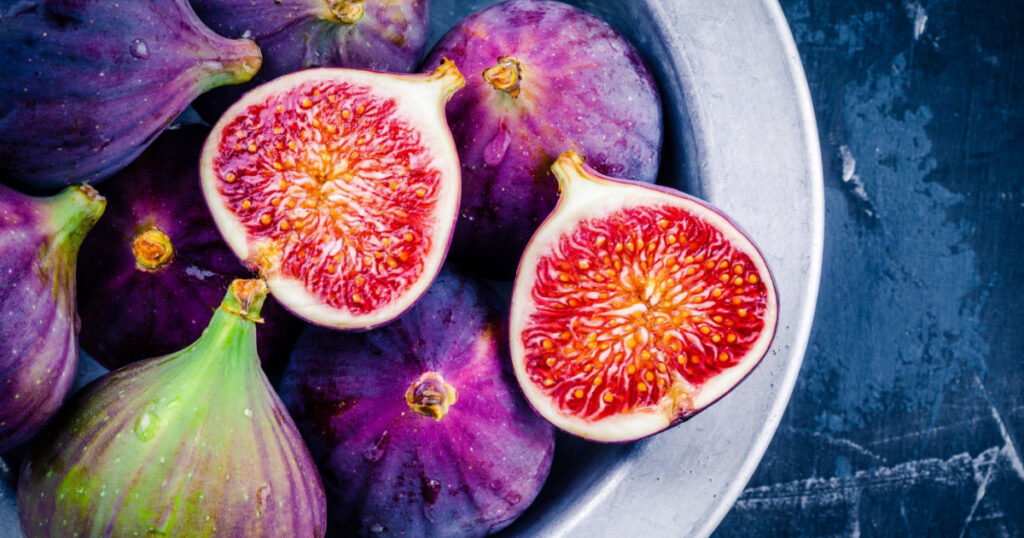
Figs are another tasty fruit that is very high in fiber. In one study, people with constipation who ate fig paste experienced faster colon transit and better stool consistency. They also reported having less abdominal discomfort [18].
Read: Healthy Stalk: 5 Health Benefits of Celery
Foods to Avoid
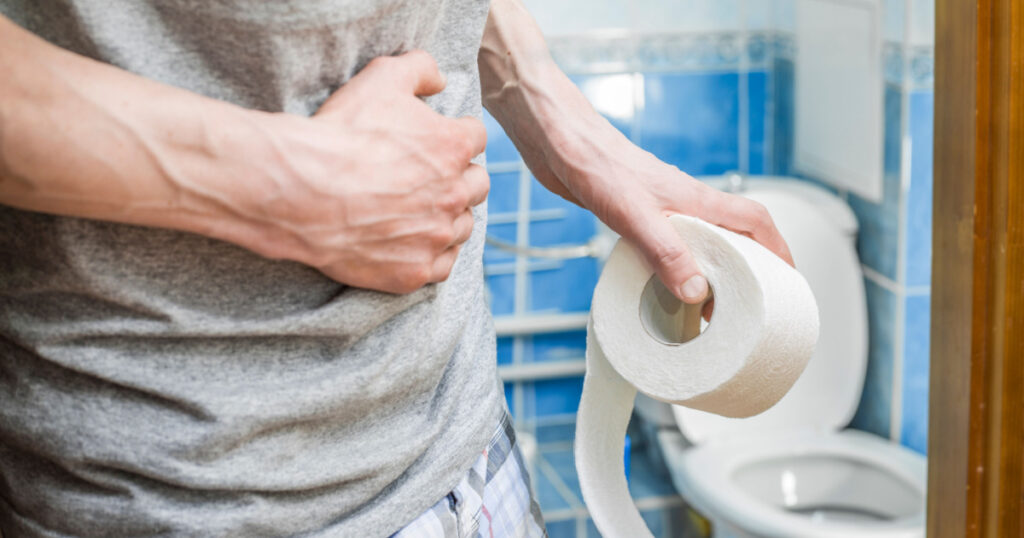
Just like there are foods that make you poop, there are also some that you may want to avoid if you’re having trouble with constipation. If you’re struggling with constipation, you should avoid the following foods:
1. Alcohol
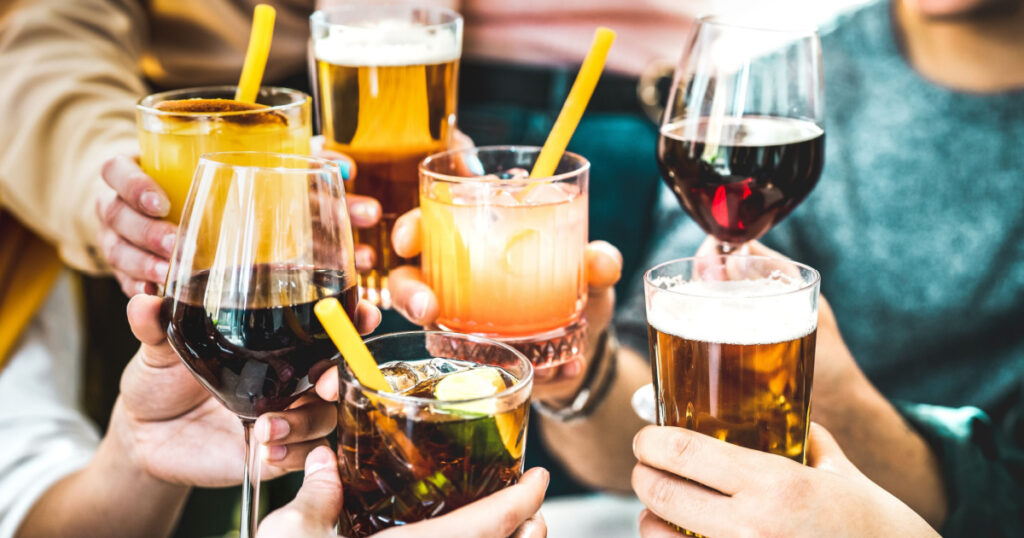
The effect of alcohol on the constitution varies from person to person. For some, it can raise the risk for constipation, while for others it can actually cause diarrhea. For this reason, it is a good idea to pay attention to how your body reacts to alcohol. If you struggle with constipation and you notice it gets worse after drinking, you may want to cut back on how much alcohol you consume [19].
2. Gluten-Containing Foods
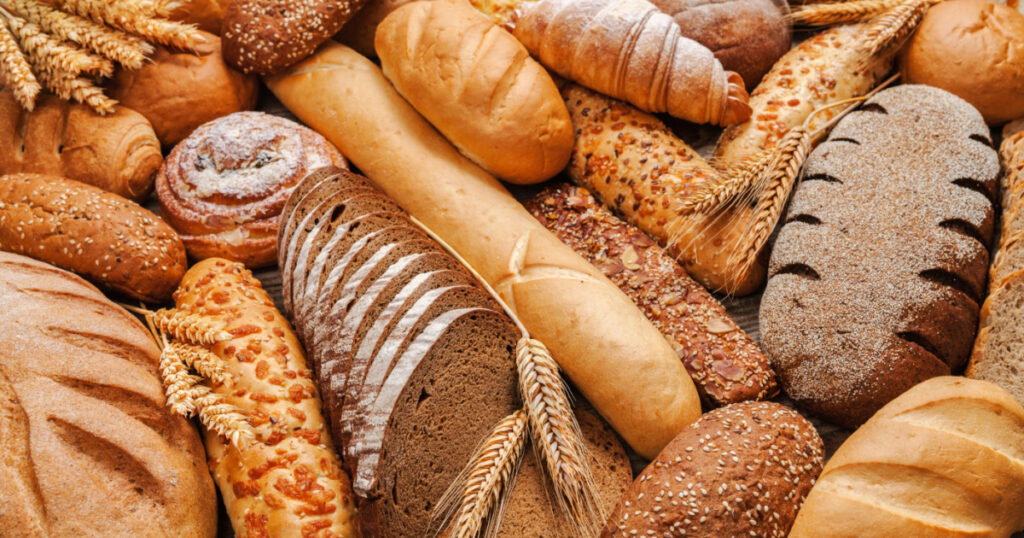
Constipation is a common symptom of celiac disease, non-celiac gluten sensitivity (NCGS), and irritable bowel syndrome (IBS). Avoiding gluten can help heal your gut and relieve the symptoms of constipation. If you think gluten might be the cause of your stomach issues, speak to a healthcare provider in order to rule out celiac disease as the cause [20].
3. Processed Grains
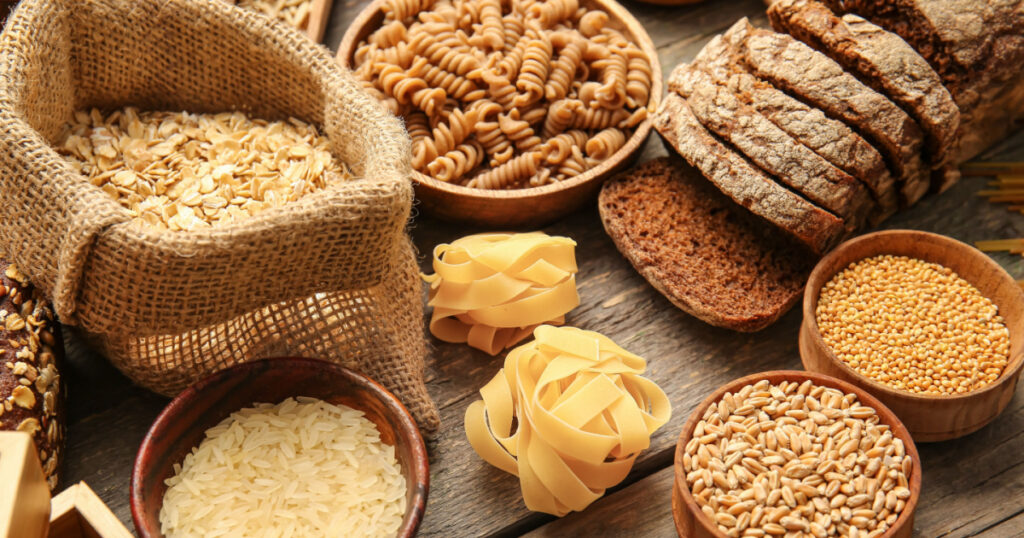
Processed grains like white bread, white rice, and white pasta are low in fiber and may be more constipating than whole grains. That being said, there have been studies to show that adding more fiber to the diet has the opposite effect on people. If you are already eating a high-fiber diet, adding more fiber may make your constipation worse. If not, however, swapping out your white bread for whole wheat bread could improve your condition [21].
4. Dairy Products
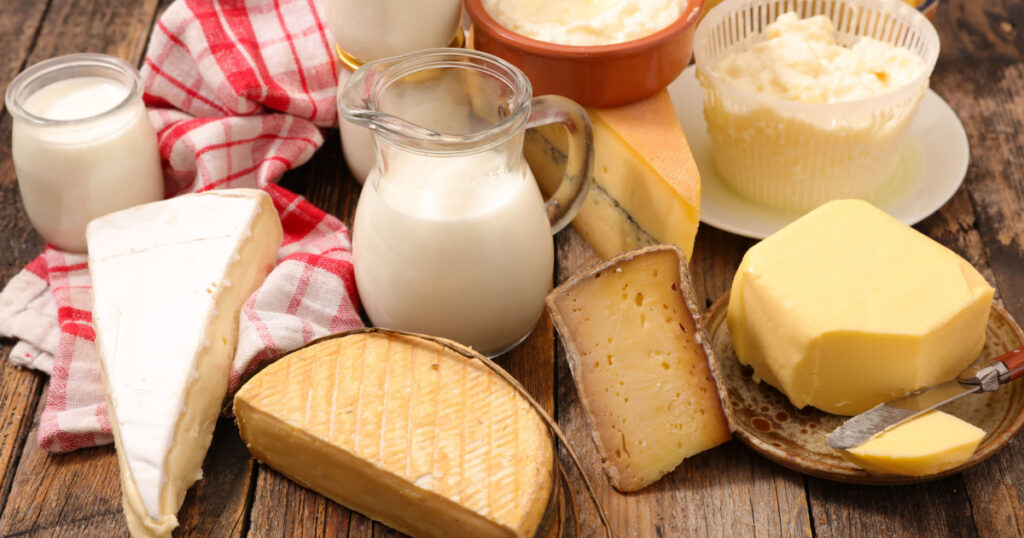
Studies have shown that children with chronic constipation experienced relief from symptoms when they stopped drinking cow’s milk [22]. There is little scientific evidence to support the same results with adults, however, there are many anecdotal reports from people who have experienced symptom relief after eliminating dairy products.
5. Red Meat
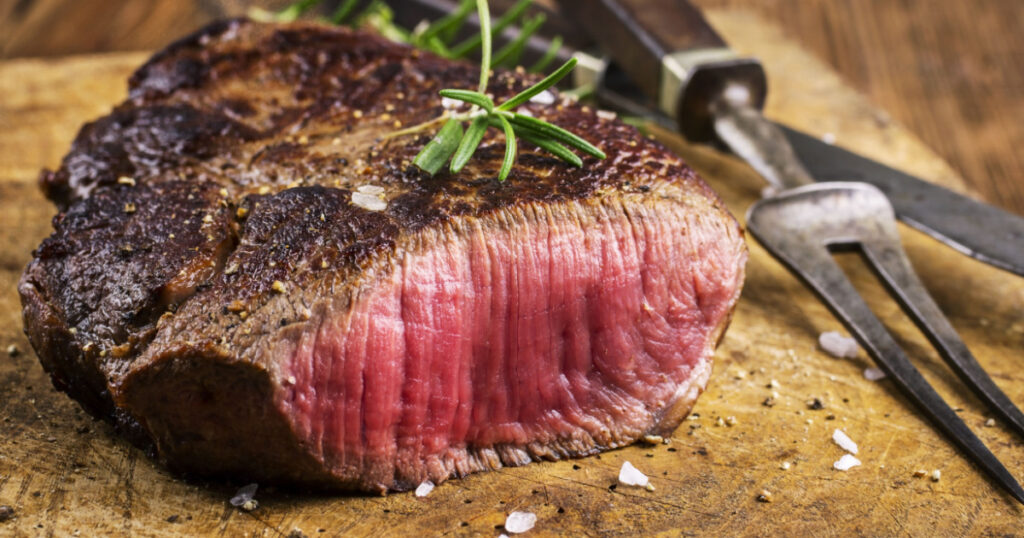
Eating large quantities of red meat can contribute to constipation because red meat is low in fiber. It may also take the place of other high-fiber foods in your diet. This could lead to an overall lower fiber intake, which could contribute to constipation [23].
6. Fried Foods
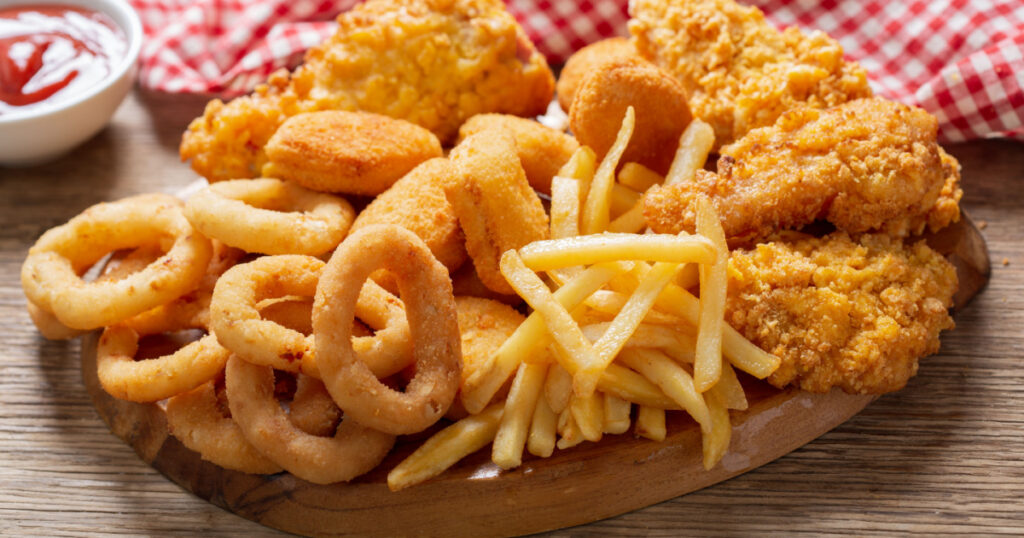
Like red meat, fried foods are low in fiber. For this reason, eating too many fried foods can contribute to an overall lower fiber intake. This can cause constipation [24].
Read: Your Bones Are Getting Weaker Year After Year, but There Are Ways to Keep Them Healthy
The BRAT Diet – Foods That ‘Make You Not Poop’
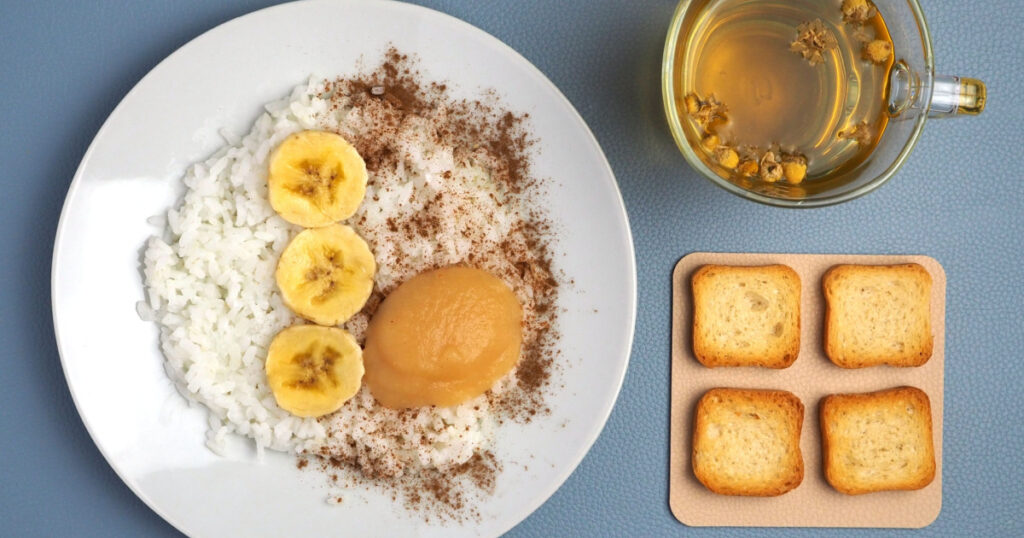
Of course, the opposite digestive problem from constipation is diarrhea. In this case, you want to be eating foods that actually slow the movement of food through your digestive tract. To accomplish this, some doctors may recommend the BRAT diet. Though it may also be a good idea to avoid these foods if you’re constipated as well. BRAT stands for bananas, rice, applesauce, and toast. This does not mean that those are the only foods that you can eat. The idea behind the BRAT diet is to eat bland foods that are easy on your digestive tract. This means eating low-fiber foods that are easy on your stomach [25].
Other foods you can eat on the BRAT diet include:
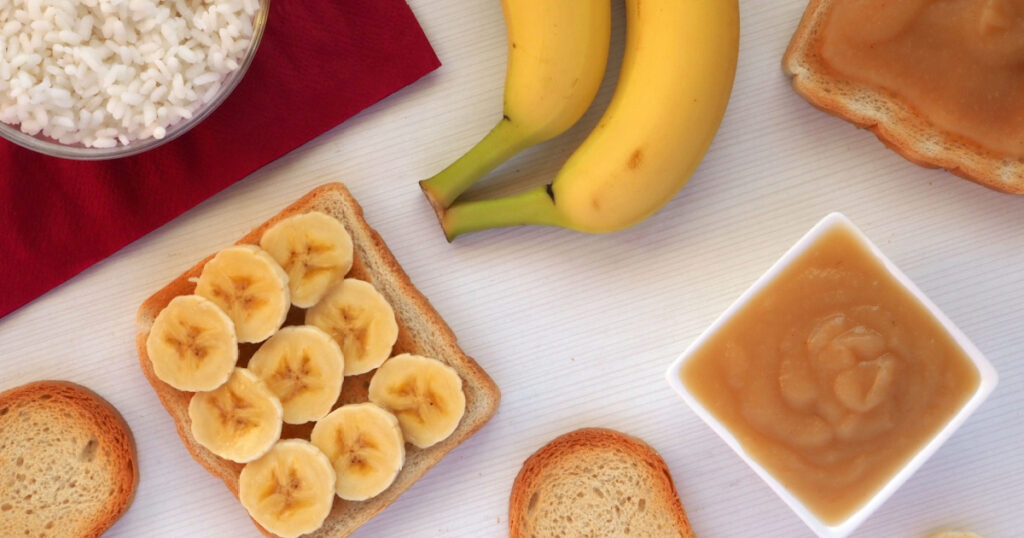
- crackers
- cooked cereals, like oatmeal or cream of wheat
- weak tea
- apple juice or flat soda
- broth
- boiled or baked potatoes
Foods to avoid on the BRAT diet include:
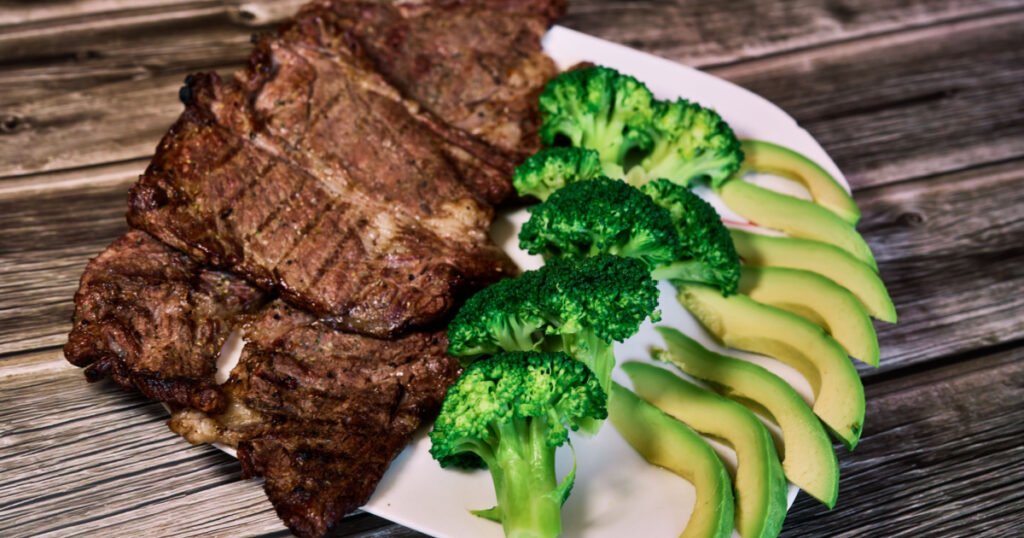
- milk and dairy
- anything fried, greasy, fatty, or spicy
- proteins, such as steak, pork, salmon, and sardines
- raw veggies, including salad greens, carrot sticks, broccoli, and cauliflower
- acidic fruits, such as berries, grapes, oranges, lemons, and limes
- very hot or cold drinks
- alcohol, coffee, or other drinks containing caffeine [26].
Doctors have been recommending the BRAT diet to treat digestive distress in children for many years
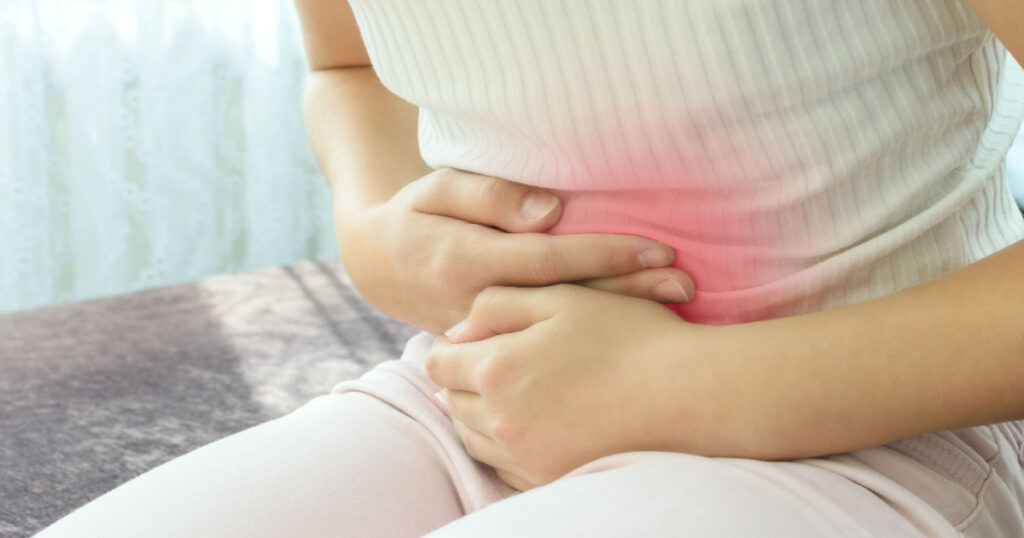
However, today there is less support for it. In fact, the American Academy of Pediatrics (AAP) no longer endorses it because it is restrictive and doesn’t provide adequate nutrition to promote healing. While eating the BRAT diet is likely better than eating no foods at all, there is very little research to support its efficacy. It is also possible that the diet does more harm than good. That being said, the goal of any diarrhea treatment is to return to a normal diet as soon as possible, so following the BRAT diet for a very short period of time (say a day or two), may not be harmful.
The Bottom Line

While there are many factors that contribute to constipation that you cannot control, your diet can play a significant role in your symptoms. If you struggle to have regular bowel movements, you may want to evaluate your diet and determine whether there are some changes you need to make in order to relieve your symptoms. Additionally, since many of these changes are part of an overall healthy diet, you may experience other benefits when you make them. These include better blood sugar control, more energy, and better weight control.
Keep Reading: Leaky Gut: What is it? Is it real? And 11 Common Symptoms to Look Out For
Sources
- https://www.ncbi.nlm.nih.gov/pmc/articles/PMC4459612/
- https://my.clevelandclinic.org/health/diseases/4059-constipation#:~:text=Common%20lifestyle%20causes%20of%20constipation,to%20bed%20at%20different%20times.
- https://www.ncbi.nlm.nih.gov/pubmed/25623312
- https://www.ncbi.nlm.nih.gov/pmc/articles/PMC3348737/
- https://www.researchgate.net/publication/49838432_Randomised_clinical_trial_Dried_plums_prunes_vs_psyllium_for_constipation
- https://www.ncbi.nlm.nih.gov/pmc/articles/PMC5944250/
- https://pubmed.ncbi.nlm.nih.gov/26746707/
- https://www.ncbi.nlm.nih.gov/pubmed/16366738
- https://www.ncbi.nlm.nih.gov/pubmed/24734892
- https://www.healthline.com/nutrition/foods-that-help-you-poop#TOC_TITLE_HDR_7
- https://www.ncbi.nlm.nih.gov/pubmed/24412547
- https://www.ncbi.nlm.nih.gov/pubmed/15353023
- https://academic.oup.com/ajcn/article/100/4/1075/4576460
- https://fdc.nal.usda.gov/fdc-app.html#/food-details/784468/nutrients
- https://www.ncbi.nlm.nih.gov/pmc/articles/PMC4926888/
- https://www.ncbi.nlm.nih.gov/pubmed/19214342
- https://www.ncbi.nlm.nih.gov/pmc/articles/PMC4027827/
- https://www.ncbi.nlm.nih.gov/pubmed/27440682
- https://www.ncbi.nlm.nih.gov/pubmed/11151864
- https://pubmed.ncbi.nlm.nih.gov/22434186/
- https://www.ncbi.nlm.nih.gov/pmc/articles/PMC3435786/
- https://onlinelibrary.wiley.com/doi/10.1111/j.1747-0080.2007.00225.x/abstract
- https://www.ncbi.nlm.nih.gov/pubmed/26652739
- https://www.ncbi.nlm.nih.gov/pubmed/26652739
- https://www.ncbi.nlm.nih.gov/books/NBK538142/#
- https://www.ncbi.nlm.nih.gov/pmc/articles/PMC6669551/#sec2-toxins-11-00410title
